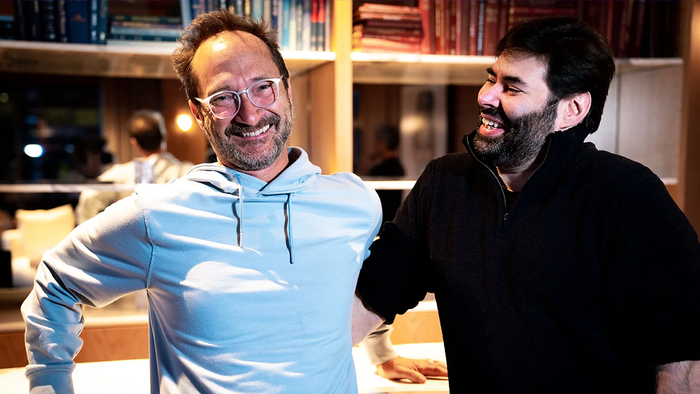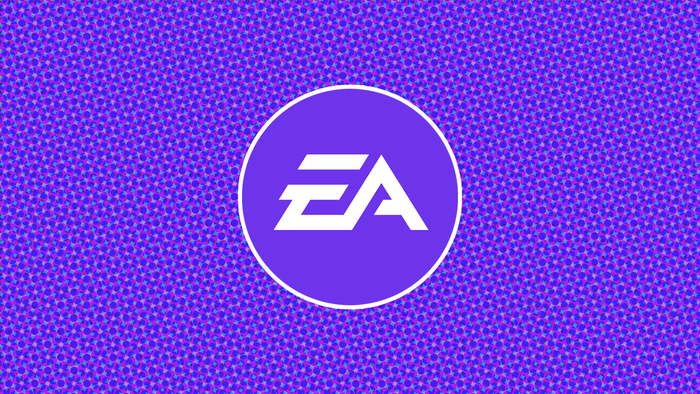Nintendo's ecosystem will fall apart, says Rage of Bahamut publisher
While Ngmoco's Neil Young is frightened of competing with Nintendo's "killer franchises," the Rage of Bahamut publisher thinks the 3DS' third party titles will be ultimately undercut by mobile games.

At a showcase event in San Francisco this week, when asked if he views Nintendo as a competitor, Ngmoco CEO Neil Young had to pause and think. "No," he said, hesitatingly. "Well... no." It's an open question. Right now, Young's company has the top-grossing Android app, Rage of Bahamut, which is also number two on iOS (having fallen from the top spot). It's a collectible card game that was originally developed for the Japanese market by the Tokyo-based studio Cygames for DeNA, Ngmoco's Japanese parent. If you view Ngmoco's Mobage service, on which Rage of Bahamut lies, as a platform, and its top game as a Japanese handheld hit, that puts him in closer competition with the Kyoto-based Mario creator. Certainly Ngmoco's head of studios, Clive Downie, was not shy about suggesting that Monster Tracker, which is currently in beta in the UK and Holland, is gunning for an audience that grew up playing Nintendo's Pokemon franchise when he introduced it. The game is developed by Ngmoco's Amsterdam-based studio Rough Cookie. But even if Young doesn't currently see Ngmoco as competing directly with Nintendo, he says the success of smartphones will inevitably chip away at the market for dedicated handhelds. "I think that Apple has done a number on Sony, and Apple and Android are now doing a number on Nintendo." "What they're really doing is defeating the Nintendo hardware machine," says Young. He views Nintendo as competing more on software than it is on hardware these days, thanks to that, "and so in that regard maybe we're competitive, but man, they've got some killer franchises," he says with a laugh. "You wouldn't want to go up against Zelda and Mario and Pokemon and Kirby every day of the week." On the other hand, Young says, given the premium prices of 3DS software, there are decreasing returns for the system. In "the ecosystem that they've created, it's just really difficult to justify spending $30 on a game that is anything other than a Mario, a Zelda, a Pokemon. I think that ultimately their ecosystem starts to fall apart." Given the first party franchises, however, Young is "actually quite happy for them to stay in their little custom handheld gaming space. I think it's very difficult to imagine them breaking away from that." And Young really does see the dedicated handheld gaming space as "little". Extrapolating from trends in Japan, where mobile has far outstripped traditional console games to take the lion's share of industry profits, he suggested that the global mobile social games space could be worth $30 billion dollars annually in the not too distant future. These analyses compare the state of Japan's mobile market in 2006 to the U.S. in 2010, when the penetration of 3G, phone ownership, and advanced features reached similar points. This is a comparison which Young has made before.  The art of Rage of Bahamut Young has always been up front about the fact that he sees Ngmoco's job as creating Western content for Western audiences, not porting DeNA's Japanese games. But he said that once his team tested Rage of Bahamut, they knew they had a massive hit on their hands. At 2,000 daily active users, he says, "We definitively, absolutely, 100 percent knew that this thing was going to be a hit, which is one of the beautiful things about this business, having that visibility." But until that point, he says, there wasn't unity within Ngmoco about the game. People were "split down the middle," with some refusing to even try the game out. Given the success of Bahamut, unsurprisingly Young expressed his desire to localize more Japanese titles. While "many don't" fit the tastes of Western audiences, he says, "many can". For his part, he said in the presentation preceding this interview that Rage of Bahamut is "a really beautiful game design" and "is so good that it really, really moves you -- like good art should move you." "It's just like console games. Some of the world's best console games have been made in Japan and lightly translated for the Western audience. And they're some of the best games ever. Rage of Bahamut is analogous to that. There are great game makers in Japan," Young told Gamasutra.
The art of Rage of Bahamut Young has always been up front about the fact that he sees Ngmoco's job as creating Western content for Western audiences, not porting DeNA's Japanese games. But he said that once his team tested Rage of Bahamut, they knew they had a massive hit on their hands. At 2,000 daily active users, he says, "We definitively, absolutely, 100 percent knew that this thing was going to be a hit, which is one of the beautiful things about this business, having that visibility." But until that point, he says, there wasn't unity within Ngmoco about the game. People were "split down the middle," with some refusing to even try the game out. Given the success of Bahamut, unsurprisingly Young expressed his desire to localize more Japanese titles. While "many don't" fit the tastes of Western audiences, he says, "many can". For his part, he said in the presentation preceding this interview that Rage of Bahamut is "a really beautiful game design" and "is so good that it really, really moves you -- like good art should move you." "It's just like console games. Some of the world's best console games have been made in Japan and lightly translated for the Western audience. And they're some of the best games ever. Rage of Bahamut is analogous to that. There are great game makers in Japan," Young told Gamasutra.
About the Author(s)
You May Also Like













